To quote Roger Ebert’s review of the movie, “Mystery Men has moments brilliance waving their arms to attract attention.” This summation is very accurate because while Ben Stiller’s superhero movie from 1999 didn’t exactly age perfectly, it does have surprising moments of cleverness. In fact, these flashes of inspiration foreshadowed jokes, trends, and ideas that the modern superhero genre would not only reuse but refine.
It could be said that in its own gonzo way, Mystery Men predicted parts of the current superhero boom that’s best embodied by the Marvel Cinematic Universe (MCU) and the DC Extended Universe (DCEU). Whether it’s through a trend or cosmic coincidence, here are 10 ways Mystery Men predicted the ongoing superhero craze.
10 Big Name Cameos
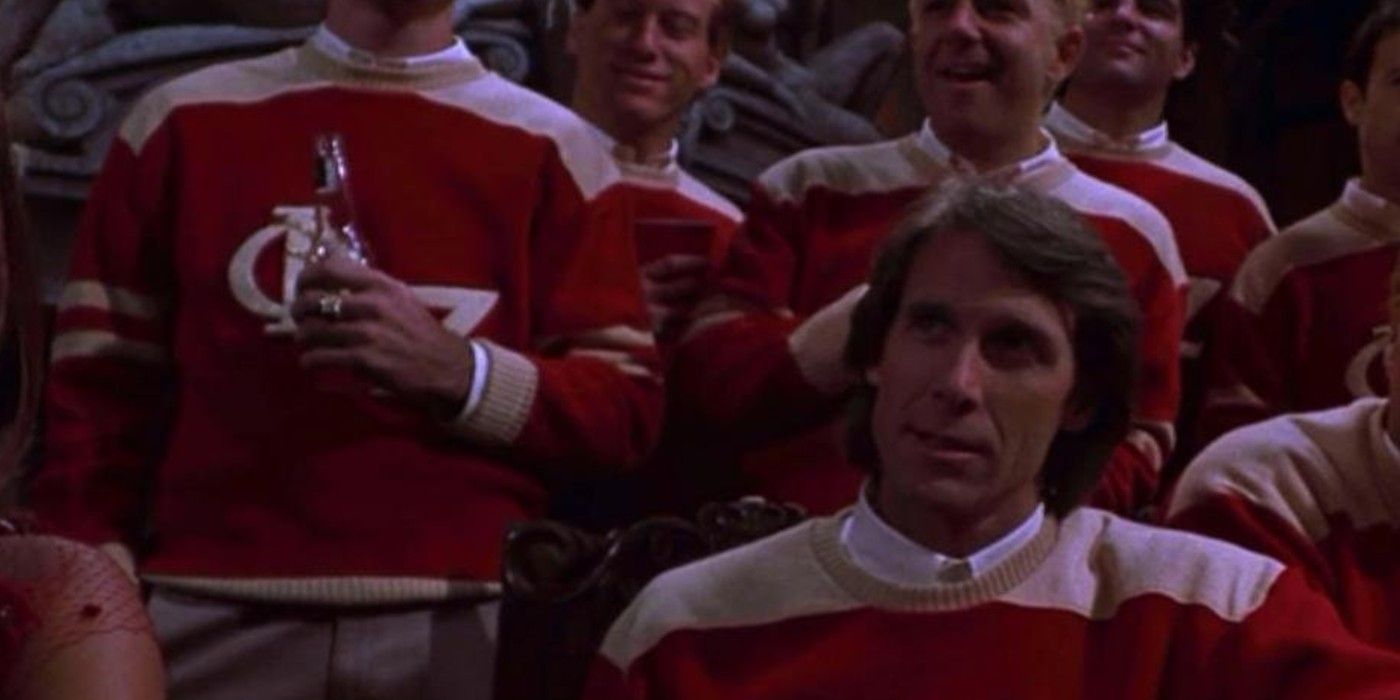
Before Casanova Frankenstein escorts the various gangs that have gathered to his mansion to see the captive Captain Amazing, the Frat Boys’ leader asks if they could bring the brewskies too. The boss Frat Boy is none other than Michael Bay, the director of Bad Boys and Transformers.
Today, superhero movies are loaded with cameos such as Bay’s that eagle-eyed fans are always on the lookout for. Famously, Marvel movies had Stan Lee cameos waiting to be spotted. Mystery Men may not have invented cameos, but it did have a big-name one before Marvel turned Stan Lee into a human Easter Egg.
9 Those Smarmy Quips
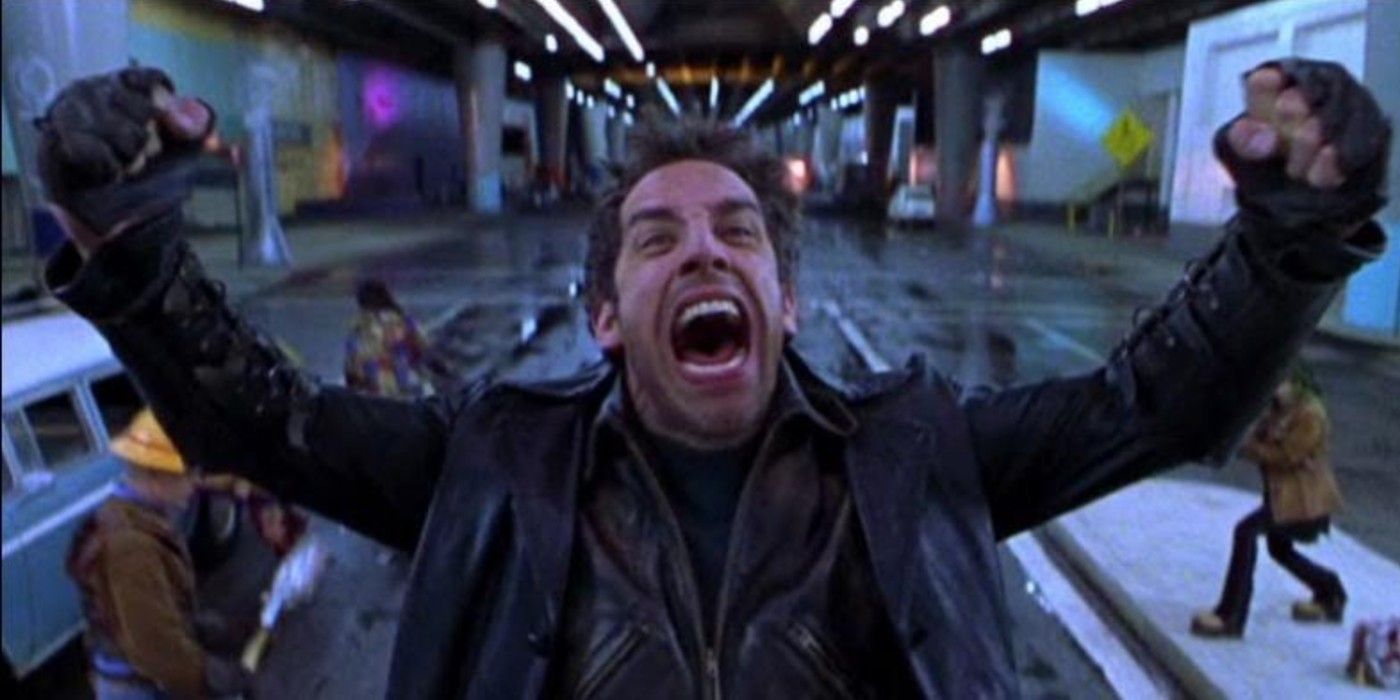
A common grievance (if not downright criticism) about superhero movies is the insufferable witty banter. You know, those jokes heroes seem obligated to say after punching a bad guy really hard? Mystery Men also has these, but in a more self-aware context.
Mr. Furious’ entire shtick is the wisecracking badass with quips for every occasion. However, he’s so bad at it that both that his teammates and audiences either feel sorry for him or hate his guts. These days, a satirical superhero story would have someone stopping a hero from throwing out a one-liner. Mystery Men didn’t give birth to quips, but it did laugh at them before doing so was cool.
8 A Unique Setting
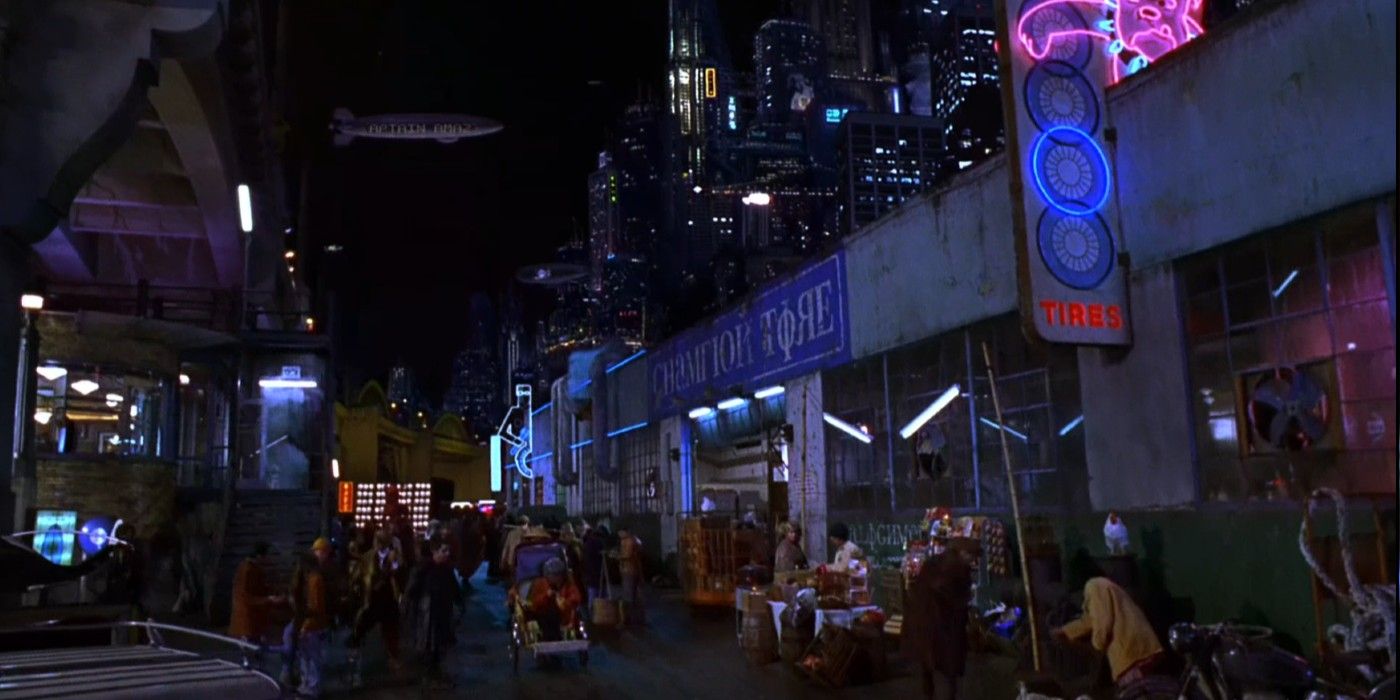
Mystery Men takes place in Champion City, which is a strange cross of Dinohattan from Super Mario Bros. and Tim Burton’s version of Gotham City. It’s also perfect for the story. There’s nothing quite like Champion City which, while dingy, is actually nearing a zero percent crime rate.
Because of its unique setting, it’s harder to forget Mystery Men than something like Steel, which takes place in a generic city. The logic of giving a superhero movie a fantastical location is what helped make Black Panther, Guardians of the Galaxy and Wonder Woman unforgettable. It’d be presumptuous to say Mystery Men was the origin for this idea, but the film did it before the aforementioned movies.
7 Superheroes As Celebrities
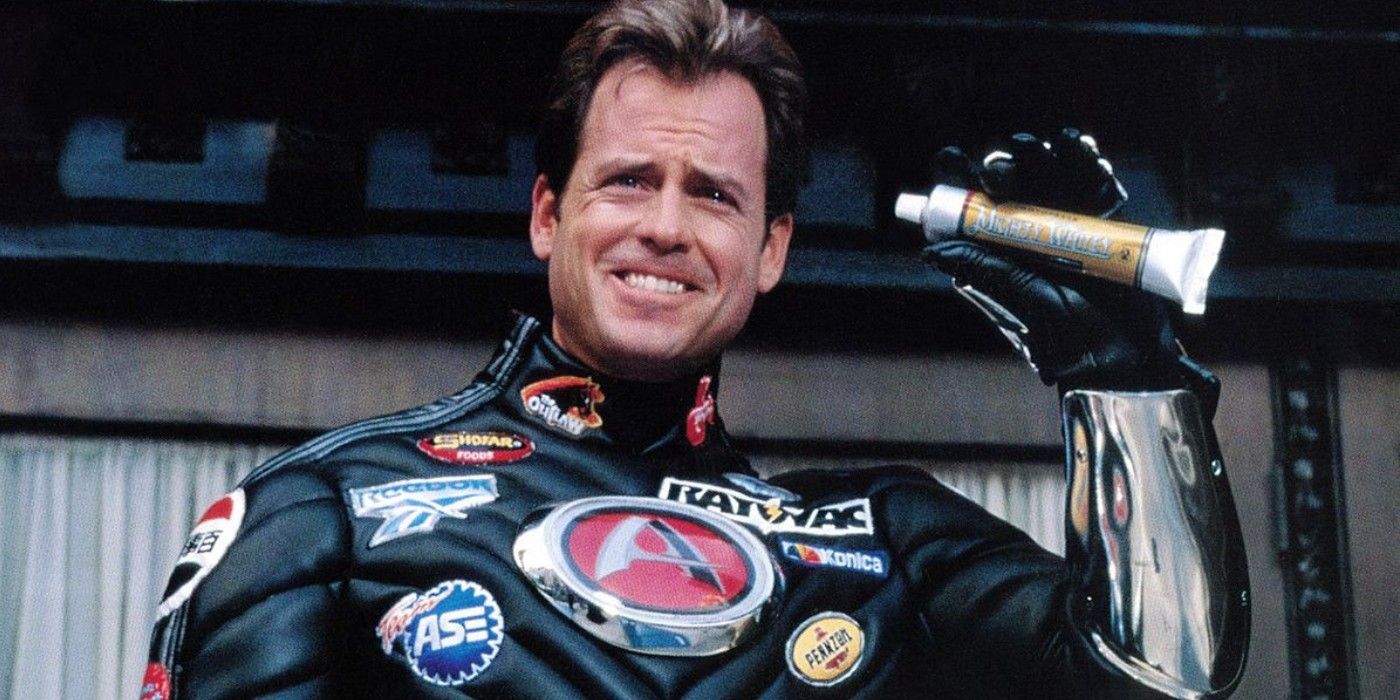
If superheroes existed, they would be the biggest influencers imaginable, and corporations would be unwise to skip this opportune moment. Mystery Men doesn’t really delve too much into it, but the implications are clear: Captain Amazing is the biggest and most expensive name in Champion City. He's also a jerk.
The movie, and many satires after it, posits that with great power comes great insensitivity. From what we’ve seen in the real world, this claim isn’t too far from the mark. This trend continued on in succeeding superhero stories, with The Boys taking this to a logical extreme with its superheroes that were manufactured by Vought International.
6 “Superman” Is A Jerk
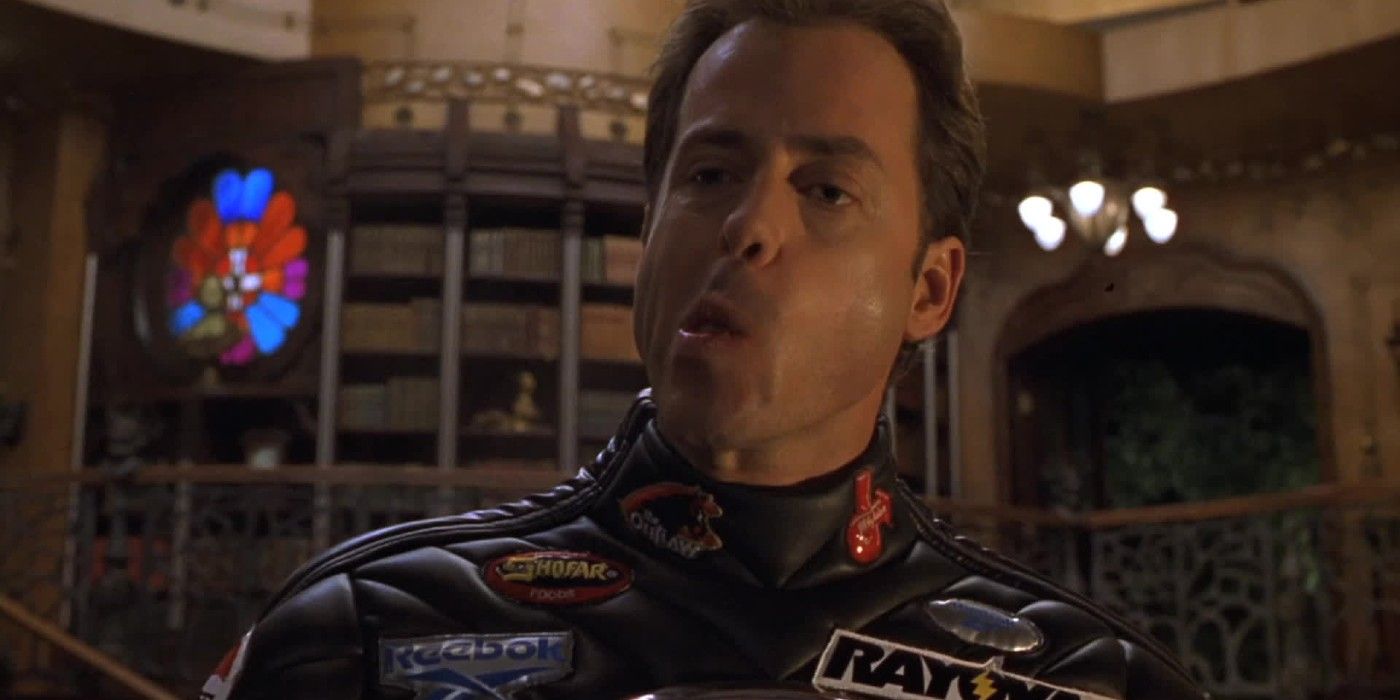
A shorthand for “realistic” superhero stories is to turn Boy Scouts like Superman into a mega-jerk. Cases in point: The Boys and Man of Steel. While it may not be the first superhero story to do so, Mystery Men beat mainstream superhero movies to this deconstructive punch with Captain Amazing.
Champion City loves Captain Amazing, even if he only cares for himself and his sponsors. After all, he let Casanova Frankenstein be paroled so that he could fight a real supervillain again, ignorant of the casualties that may ensue. This all happened because Captain Amazing was determined to win back Pepsi’s sponsorship.
5 The Blue-Collar Hero
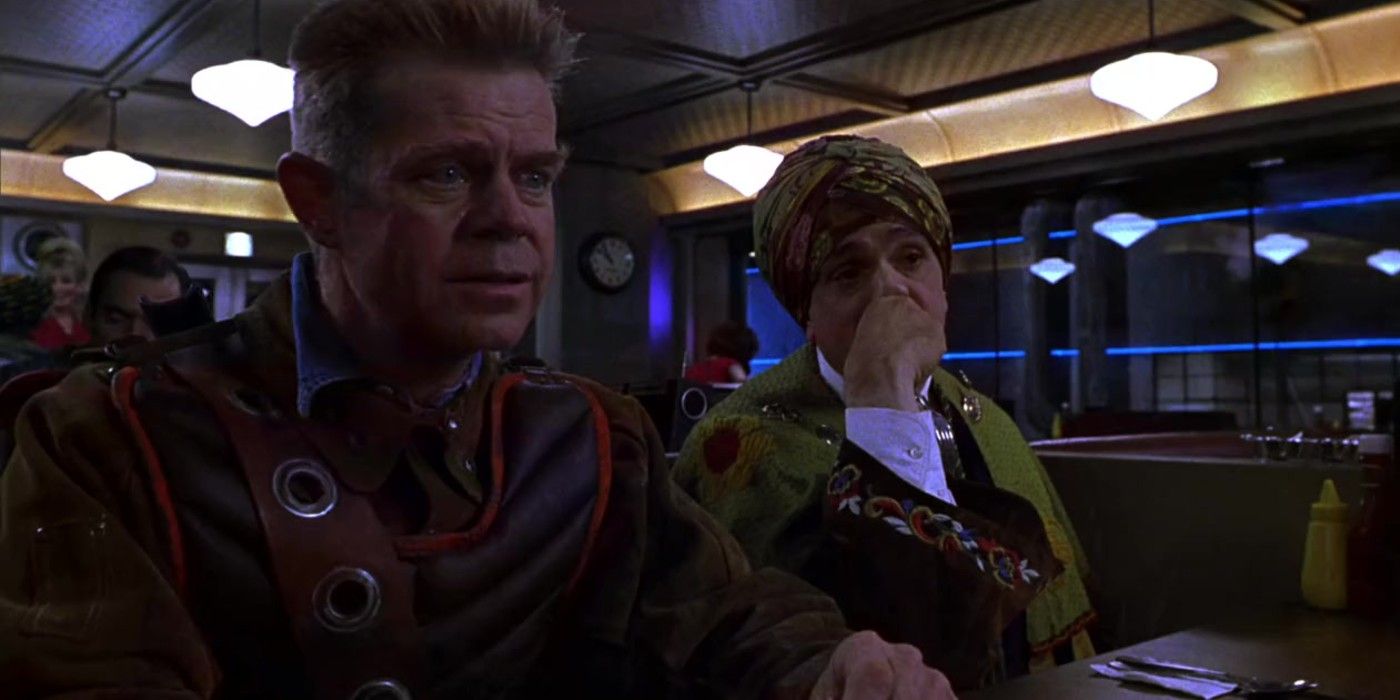
If the most famous and powerful superheroes are jerks, then those with unremarkable powers or abilities are the more relatable ones. This is a common characterization seen in works like Amazon's The Boys and HBO’s Watchmen but again, Mystery Men got a head start.
The Mystery Men are blue-collar guys with undeniable passion for heroism, but none of the power or money to back it up. Before making it to the big leagues, they struggle with their mundane lives and jobs. This grounded attitude can be seen in heroes like Ant-Man, Spider-Man and Shazam, who all resonate with audiences better than a billionaire vigilante ever could.
4 Useless Superpowers Are Cool
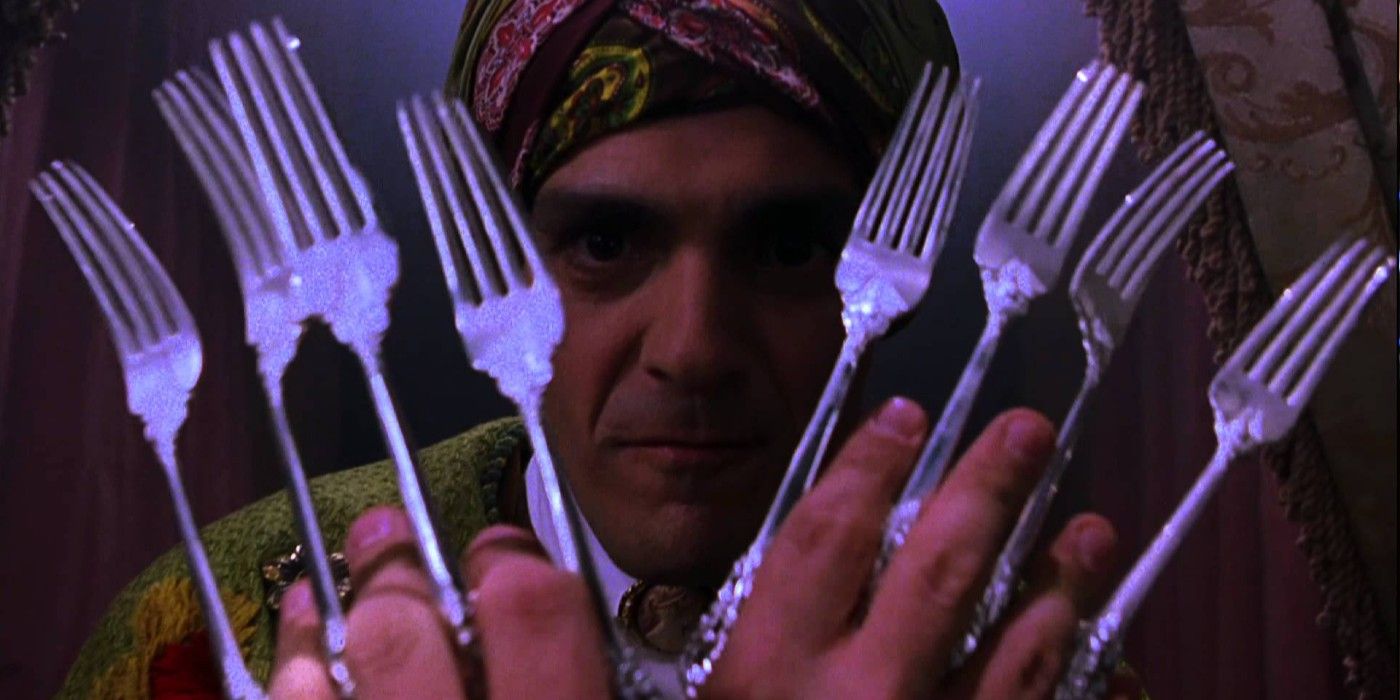
As much as we admire their heart, the Mystery Men kind of suck. Not only do they flub their introductory mission, but their powers like farting, fork-throwing, and a shovel are useless at best. But by the movie’s end, these walking punchlines are vindicated thanks to teamwork and some badass upgrades that help them save the day.
This validation also happened to future superhero movies but in a more literal sense. Previously, powers such as talking to fish, dancing, and luck were the butt of jokes on Robot Chicken but now, they’re synonymous to some of today’ most popular heroes. Respectively, they represent Aquaman, Star-Lord, and Domino. This is proof that in superhero movies, anything can be a superpower.
3 The Uneventful Death Of Superman
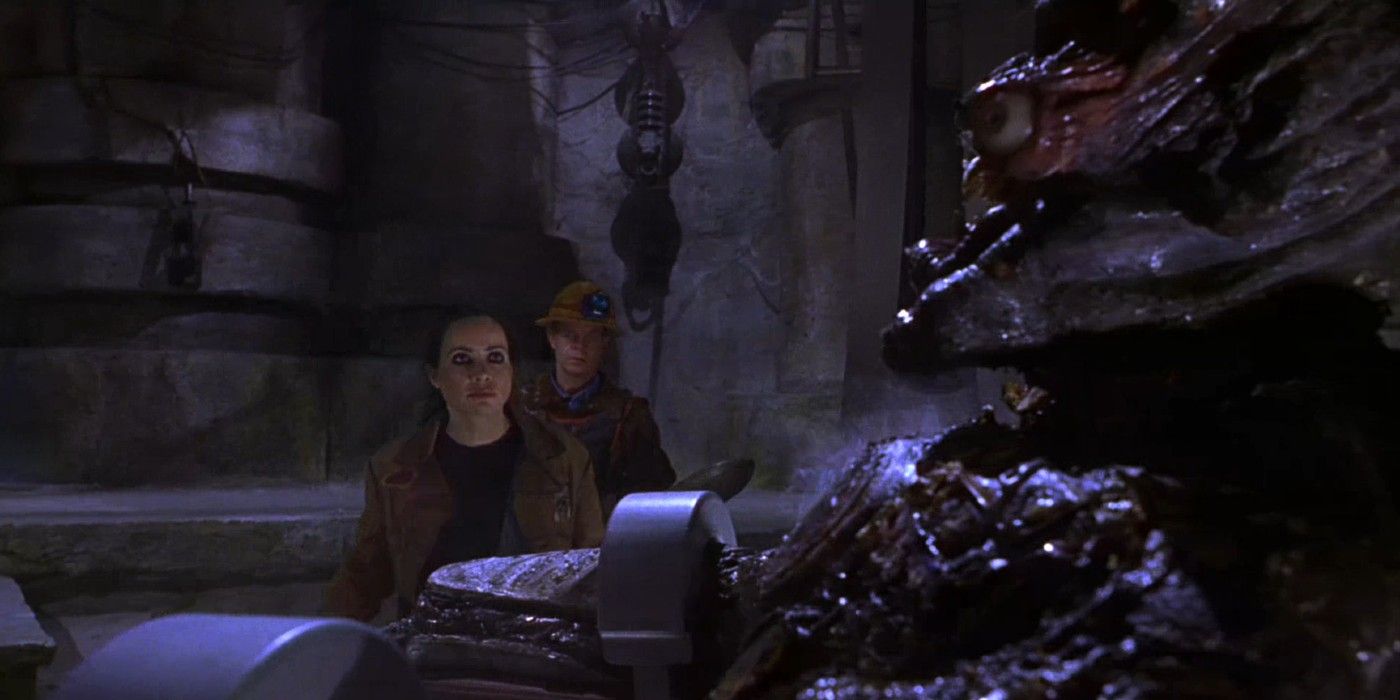
These days, killing off a superhero (or theories about it) have become so commonplace that they sometimes lessen the moment’s impact. Iron Man’s sacrifice in Avengers: Endgame is still the MCU’s saddest moment, but it’s hard not to say that no one saw it coming. Meanwhile, Mystery Men killed off its biggest hero as a punchline.
Unintentionally, Mystery Men foreshadowed the normalcy of superhero deaths that are treated more as plot devices than tragedies. With how mainstream the genre is, it’s hard to mourn a fallen hero when more are on their way. While serious deaths are still a thing, Captain Amazing’s accidental death has a spiritual successor in Deadpool 2, where X-Force’s first mission goes laughably wrong.
2 Genre-Aware Characters
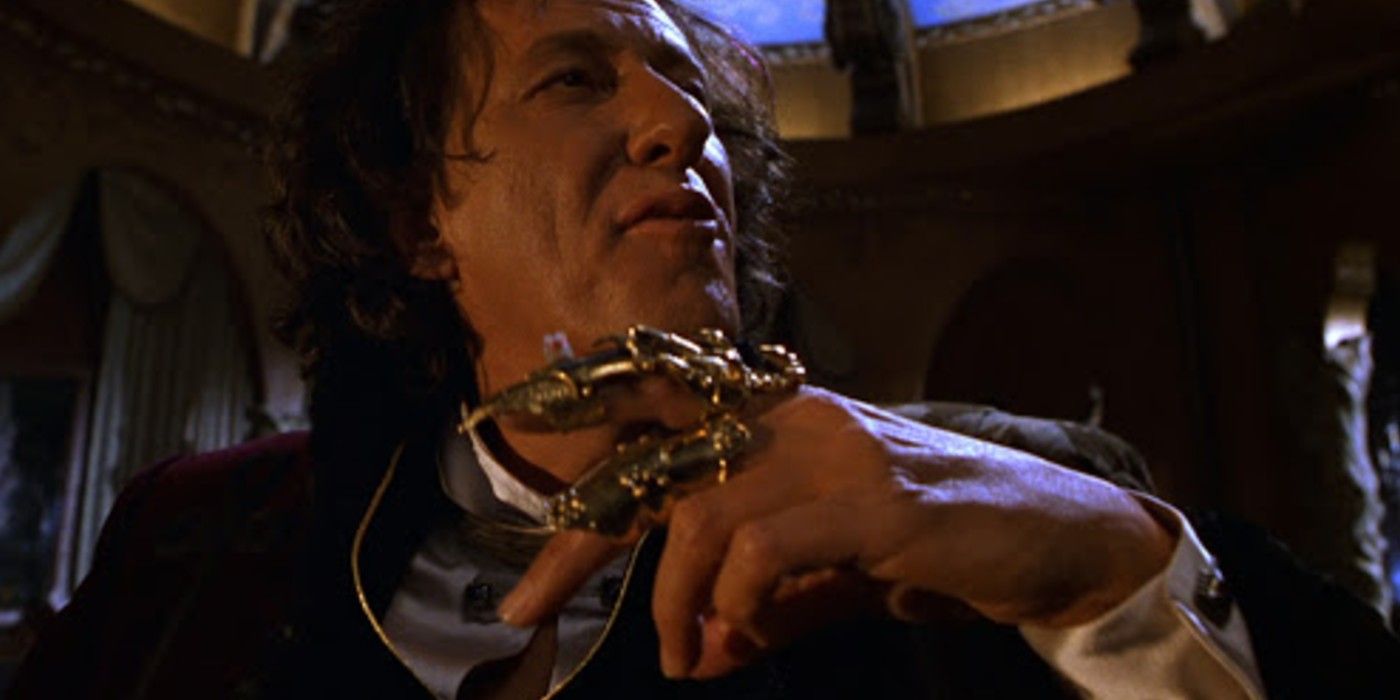
While the Mystery Men follow the usual underdog’s journey, it’s their more established counterparts who exude surprising levels of self-awareness. Captain Amazing knows how to game the public’s love of superheroes to maintain his stardom, while Casanova Frankenstein outsmarts him and nearly wins by taking note of superheroes’ tropes and pitfalls.
This medium-awareness that’s only possible through a familiarity with the genre may seem obvious today, but it took a while before it cropped up in straightforward superhero movies. The most prominent examples of this are Deadpool and Shazam!, where medium awareness was used for comedic and dramatic effect. Each movie’s heroes and villains knew what kind of story they were in, and they used the appropriate tropes to their advantage.
1 The Superhero Satire
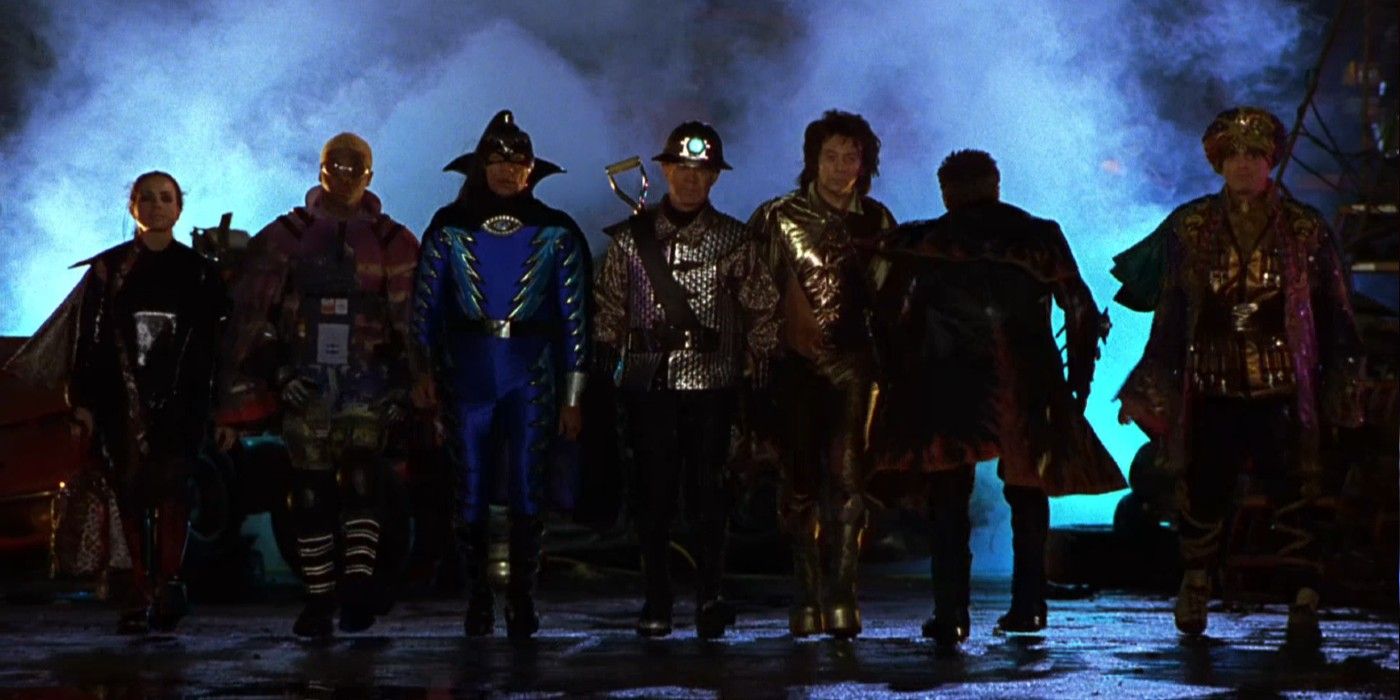
The strangest thing about Mystery Men is that it’s a superhero parody that predates the superhero boom by almost a decade. In 1999, the most well-known traditional superhero movie was probably Batman & Robin. Perhaps this is why Mystery Men originally failed to find an audience — superhero movies were the punchline, making parodies were unnecessary.
Mystery Men’s comedic yet clever observations about superheroes and the world they would impact were ahead of their time as this same brainwave is what drives parodies such as Deadpool and serious deconstructions like The Boys. These jokes may have fallen on deaf ears back then, but pitch Mystery Men today while keeping its sense of humor intact, and studios would fight tooth and nail for it.
from ScreenRant - Feed https://ift.tt/375Kid5

No comments: